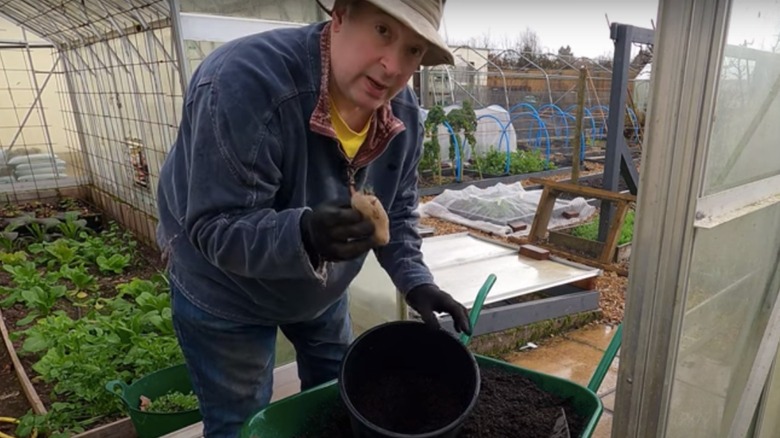It doesn’t matter if you’re an experienced gardener or a novice at growing your own plants, the fact remains: your greenhouse needs at least three to six hours of sunlight a day to help your plants thrive, with the latter being preferable. Unfortunately, even if your greenhouse is located in an area with plenty of sunlight, you might find that external factors prevent your plants from receiving the sun’s nourishing rays. Namely, fogging. This common phenomenon is par for the course inside greenhouses, but it can pose an issue for your plants, especially those that thrive in full sunlight. However, an item in your garden or kitchen could prevent your greenhouse windows from fogging in the first place — a potato.
The great thing about this incredible hack is that you can carry it out inexpensively and without any harsh chemicals. This is especially important for anyone looking to keep their garden and its surroundings as green and organic as possible. If you’re worried about food waste, you can use an old potato with sprouts and even replant it afterward to regrow new potatoes.
Apply potato starch to greenhouse windows

YouTube
The great thing about this hack is that it requires nominal prep work. First, you’ll need to clean your potato. These root vegetables have dirt and debris on them that can scratch your windows, so always start with a clean potato. Once your potato is washed and ready to go, you’ll need to slice your potato in half. Next, rub your starchy potato slices against the glass of your greenhouse windows, using the starchy side to protect against fog. With nothing more than a little elbow grease, you’ll have fog-free windows in no time.
Use one side of your potato at a time, alternating halves when one side dries up. You can also remove a sliver of your potato, exposing the potato juice just beneath the surface. The reason this hack works is easy: your potato’s starchy film creates a barrier that can prevent fog from sticking to your greenhouse windows. Even better, you can use this potato hack to stop fog from forming on other windows as well, such as conservatories, sun rooms, and cars.




